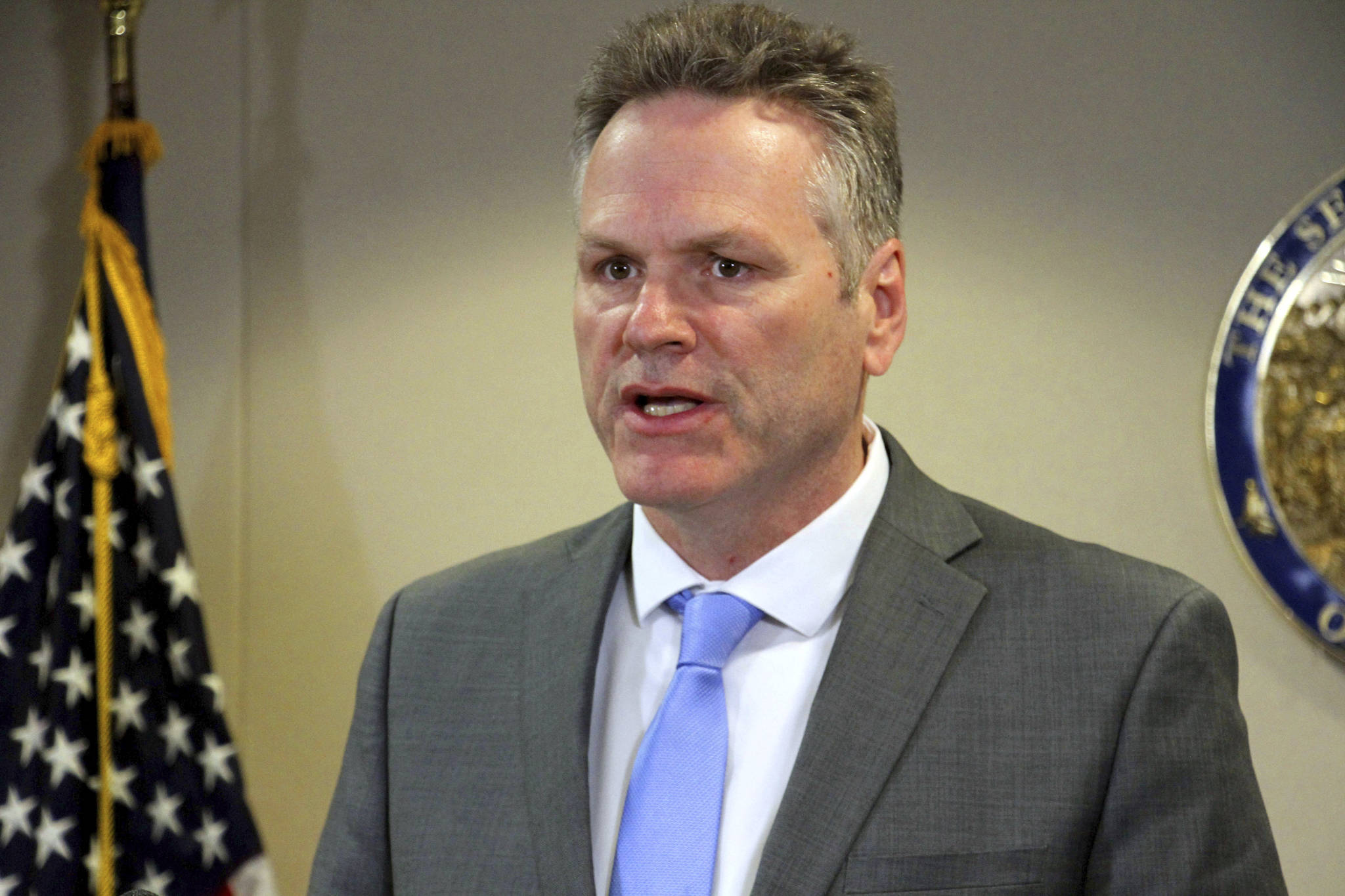Gov. Mike Dunleavy announced the state was suspending visitation to many state-run facilities Friday, including the Department of Corrections, Alaska Psychiatric Institute and Division of Juvenile Justice facilities. Pioneer Homes will limit visitations to one person per day, and that person must undergo a rigorous health screening.
The closures are in response to concerns about spread of the COVID-19 virus, the governor said.
At a press conference in Anchorage, Dunleavy said that in addition to the facilities’ closure, Alaska’s public schools for grades k-12 would be closed to students until March 30. Teachers and staff would continue working during that time, but after school activities would be suspended as well. Boarding schools will remain open for the time being, he said, but will continue to be evaluated.
“What we’re basically doing is expanding spring break until March 30,” Dunleavy said. “During that time there will be no students in the public schools.”
Joining the press conference by phone from Juneau, Department of Education and Early Development Commissioner Michael Johnson said that high school seniors on schedule to graduate in the spring should be able to do so.
“Students won’t be in the schools, staff will be working on instructional delivery, it should not be a problem for seniors who are graduating,” Johnson said.
For students who receive low-cost or free meals from schools, the state has received a waiver from the U.S. Department of Agriculture to distribute what he called “non-congregate meals.” School districts are encouraged to designate sites where meals can be distributed. Already nine school districts had applied for the waivers within the state, Johnson said.
Alaska’s chief medical officer Dr. Anne Zink said the state was encouraging people, including private businesses, to follow the Centers for Disease Control and Prevention guidelines for limiting the spread of the virus.
There were no additional updates on the man who Thursday was confirmed to have contracted the COVID-19 virus. Zink was able to say he was a cargo pilot.
“We do not have any new or presumed cases in Alaska,” Zink said. “Currently, as of noon (Friday) the state has conducted 144 tests.”
Most of those tests — 133 — had come back negative, she said. The rest, except one case already confirmed, were still pending.
People should continue to take precautions against spreading the disease, Zink said, and work to try and change their behavior to help do that.
“It’s a time to stop handshaking, disinfect surfaces, increase ventilation when possible,” she said. “Be careful during meetings and events, use video conferencing when possible.”
Earlier in the day Friday, the Legislature announced the Alaska State Capitol would be closed to the public until further notice. Legislators, staff and credentialed journalists would still be allowed at the capitol.
So far, the state had only issued closure mandates for state facilities, Dunleavy said. However, he said it was possible that in the future the state might mandate the closure of private businesses as well.
• Contact reporter Peter Segall at 523-2228 or psegall@juneauempire.com.

